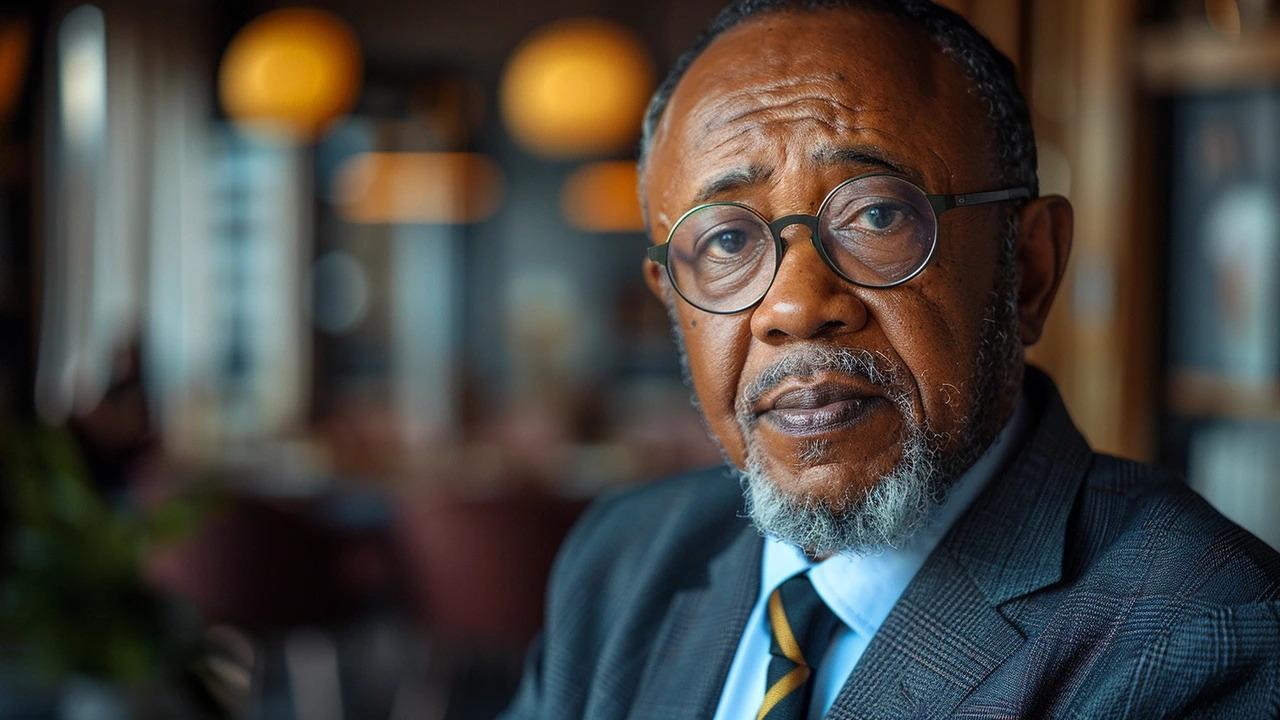Mithika Linturi Faces Impeachment Over Allegations: An In-Depth Look at the Hearing
 May, 8 2024
May, 8 2024
The Impeachment Hearing of Mithika Linturi
The corridors of power in Kenya are once again echoing with the sounds of controversy and legal proceedings as Agriculture Cabinet Secretary Mithika Linturi finds himself at the center of an impeachment trial. This case, unique in its linkage of personal grievances to professional conduct, casts a long shadow over Linturi’s career and the broader political landscape in Kenya.
At the heart of the impeachment is an accusation involving the allegedly fraudulent handling of fertilizer—a critical resource in an agriculturally dependent country like Kenya. Bumula MP Jack Wamboka, spearheading the impeachment motion, has pointed to discrepancies in Linturi's explanation and handling of this matter, describing it as both a 'gross violation of the Constitution' and 'gross misconduct.' These are serious allegations that could not only end Linturi’s political career but also affect the trust bestowed upon the governmental institutions by the public.
Linturi, during his heartfelt plea in front of an 11-member committee, vehemently denied any wrongdoing. His defense seems to pivot crucially on the argument that the impeachment motion is significantly influenced by personal issues stemming from a past relationship, which he suggests are being used to paint a targeted narrative against him. “I would not wish what I’m going through on any human being,” Linturi expressed, indicating the personal toll the trial has taken on him.
The trial, expected to last three days, will see both sides presenting their evidence and arguments before the committee retires to write its critical report. This report will likely influence not only the future of Linturi's political career but also signal how personal issues are interwoven with official duties and responsibilities in Kenyan politics.
As the proceedings continue, the public and political commentators alike are closely watching to see the outcome. The implications are significant and manifold. For Linturi, a ruling against him could spell the end of his tenure as a Cabinet Secretary and leave a blemish on his political reputation. For the political establishment, it's a test of integrity and the ability to uphold constitutional values amid personal vendettas and political maneuvering.
The discussion around the case also brings to light the broader issues of accountability and transparency within Kenyan political circles. As this trial unfolds, it serves as a litmus test for the judiciary’s independence and the political elite’s willingness to hold one of their own accountable. The coming days in the committee's chambers are set to be a nexus of legal arguments, personal testimonies, and the unyielding gaze of public scrutiny.
Personal Affairs and Political Implications
In his emotional address, Linturi hinted at the influence of personal relationships gone sour affecting the professional allegations levied against him. Such intertwining of personal and public spheres is not new in politics; however, the direct impact these have on legal and professional proceedings is always a matter of intense debate and scrutiny. The situation poses numerous questions about the veracity of the claims and the motivations behind them. It also highlights the vulnerability of public officials to personal attacks that may cloud judgment or influence public perception.
As the impeachment trial progresses, the evidence presented and the manner of its presentation will be pivotal in determining the outcome. The role of personal relationships in political discourse is a delicate one, and this case might set a precedent for how such matters are treated in the future in Kenyan politics. Observers are also keenly looking to see if the proceedings stick to the legal facts or if they veer into the personal vendettas that Linturi claims are at play.
Looking Ahead
The implications of Linturi’s impeachment extend beyond the man himself. They touch upon the effectiveness, credibility, and integrity of the current government structure in Kenya. They serve as a reminder of the complex interplay between personal integrity and public office, between private affairs and public trust. As the committee deliberates over their report in the coming days, the outcome of this trial will undoubtedly resonate through the corridors of power in Kenya, influencing political and legal proceedings in the future and potentially reshaping public perception of political accountability.